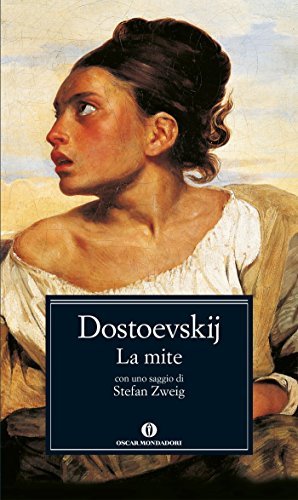Masterpieces of Dostoevsky: La Mite
A whirlwind of thoughts - organized in a crescendo of anger and fear - which is a confession to the reader. A monologue with an open heart, a dialogue of the narrator with himself, a reflection, to try to reconstruct the misunderstandings chronologically. Between the pages, we meet the protagonist, stubborn to retrace past events, through the story, to try to identify what may have escaped him in the first instance and which caused the sudden 'fall of the veil' on the nefarious events of his present.

Here he is, then, grappling with the ifs, with the buts, with the contradictions, with the feelings of guilt and above all with the feeling of 'human' impotence in the face of the inevitability of events and the unpredictability of instincts and fatal decisions. of the one he thought he knew thoroughly. Each paragraph will add an extra piece to the composition and therefore to the understanding of the psychology of the narrator. From page to page, his fear of loneliness is more and more prevalent. Fear that will reveal itself, ultimately, through a final 'explosion' all condensed into the question '.. what will I do?'.
At this point it is clear the initial motivation that prompted the protagonist to undertake this investigation backwards, which, effectively, will add nothing to his (non) knowledge of the story. At the most, it will cause a feeling of loss to rise in his heart and mind that does not seem to know possible or admissible solutions. Indeed, the titles of the individual paragraphs, as well as the steps and steps (apparently) forward in the investigation, could be graphically rendered with a straight line that rises and that towards the end of the narrative reaches its peak ("I understand too much"), announcing however, at the same time, the imminent and inevitable subsequent dive.
In this way the narrator makes the guilt of the whole story fall on his own person, to the point that, finally, he almost seems to want to justify and apologize for not having had the time and intuition to 'foresee' the tragic events. which concerned his young woman and wife ("I was delayed no more than five minutes"). Few and dense pages that leave open - as only literature can do - questions and reflections on man, morality, his time and relationships, especially marital ones. It will be no coincidence that 'our' Moravia will get his hands on the same mass of human contradictions. In particular, from this story, his analysis of life as a couple and as a couple seems to come to life, so expertly frescoed in "The contempt", but, mind you, the link that Moravia will establish with his illustrious Russian predecessor, does not it will be unique, neither occasional or accidental.
https://twitter.com/Cloudsystem83/status/1373348402784780291
i think i need to read that one